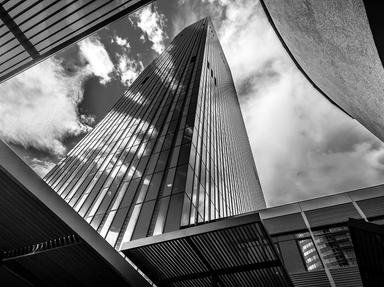Quiz Answer Key and Fun Facts
1. After coming to prominence during the Revolution I led the army to victory in Italy. I later seized power in my country and became First Consul in 1799 and crowned myself Emperor in 1804.
2. I served with the Free French Forces during WWII and became Chief of Staff of the army when my country gained independence from France. I seized power in 1966 and declared myself president for life and was military ruler till 1976. I was a great admirer of Napoleon and crowned myself Emperor in 1977 declaring my country an empire to distinguish it from the rest of the continent. After a contoversial reign I was overthrown by my predecessor in 1979.
3. I had been head of the Defence Forces and was recalled from retirement after the outbreak of war in 1973 and played a decisive role in that conflict. I later became Defence Minister and was elected Prime Minister in 2001.
4. I first came ot prominence when I led a Polish contingent to crush the Czechoslovak reform movement in 1968. I was involved in plotting against the long standing leader of my country and in 1981 I succeeded to the Presidency. I declared martial law, which was in force for most of my presidency, but was swept from power in the reforms of 1990.
5. I led the army during the heroic defence of Verdun in 1916 and was commander in chief and a national hero by the end of WW I. Between the wars I was a proponent of appeasement of German grievances and became the leading defeatist after they forced the surrender of my country in 1940. I was appointed to head a puppet government in the unoccupied part of my country.
6. I was a successful lawyer before leading a guerrilla campaign against the British during the Boer War. I participated in the reconstruction of my homeland after the war and served two terms as Prime Minister from 1919-24 and 1939-48.
7. I led a national contingent during UN peacekeeping missions to Lebanon and Sinai during the 1980's. As Army Chief of Staff I led two military coups in 1987 to forestall a percieved threat to my ethnic interests and later served as Prime Minister from 1992-99.
8. I came to prominence as an outstanding commander during the Gallipoli campaign in 1915-16. By the end of WWI I was a Brigadier General and was a leading figure in the establishment of a Republic on the ruins of the old Empire. I served as Prime Minister from 1920-21 and was President from 1923-38.
9. I was imprisoned by the British in the Revolutionary war and later became a lawyer. As a military commander I led a decisive victory over the British at New Orleans in 1815. I later served two terms as President from 1829-37.
10. I was a Lieutenant-General when I assured the independence of my country in the wake of the chaos that followed the Bolshevik Revolution. I was recalled to lead the army once again in 1939-40 when the Soviet Union attacked my country. I served as President from 1944-46.
11. Inspired by the 1952 officers' coup in neighbouring Egypt I deposed the aging King Idris in 1969 and abolished the monarchy replacing it with a republic. As leader I gained a reputation in the 70's and 80's for sponsoring extremist and 'liberation' groups worldwide.
12. I was a leader in an officers' coup in 1952 that deposed the corrupt ruler of my country. I succeeded to the Presidency on the death of my predecessor in 1970 and broke a long stalemate in the Middle East by launching a surprise attack in 1973.
13. As a young officer I served in India and later rose to prominence when I led a successful campaignin the Peninsular War of 1808-14. After the downfall of Napoleon I became a elder statesman with a reputation as a reactionary and served as Prime Minister from 1828-30.
14. I served in the Indian army during WWII and later became a general in the army of my newly independent homeland. After taking over the Presidency from a fellow general during a period of turmoil I presided over the breakup of my country in 1971 and was forced to surrender power in the ensuing chaos.
15. I served with distinction during WWI and rose through the ranks during the inter war years becomming a proponent of mobile warefare. I was a Brigadier General at the time my country fell before the German blitzkrieg of 1940 and became the leader of those forces which had escaped the catatrophe. I was a fierce proponent of my national interests, much to the consternation of allied leaders, a line which I continued when I became president of the Fifth Republic from 1958-69.
Source: Author
mstanaway
This quiz was reviewed by FunTrivia editor
bloomsby before going online.
Any errors found in FunTrivia content are routinely corrected through our feedback system.
